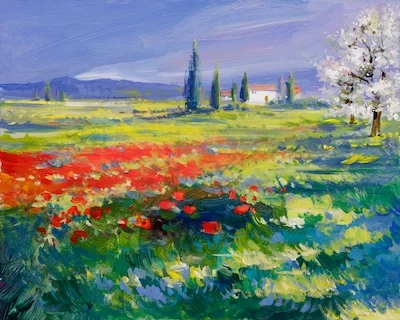
Western Canada's art magazine since 2002
9 October 2018 Vol 3 No 21 ISSN 2561-3316 © 2018
From the Editor
As I write this note, I'm struck yet again how a different mood can coalesce in each issue of Galleries West. This time around, our stories seem to explore different aspects of contemporary angst.
For instance, poet Susan Andrews Grace notes themes of anxiety, addiction, escapism and environmental crisis as she writes about Deborah Thompson, an artist based in Nelson, B.C.
My story about Vancouver's Lori Goldberg reflects her concerns about the heavy toll of consumer excess and the rising tide of global waste.
John Thomson's story on the Vancouver Biennale focuses on Australian artist Patricia Piccinini, whose hyperreal sculptures of hybrid creatures gone awry are a creepy yet haunting commentary on the perils of genetic engineering. Her work speaks to contemporary anxieties about what it means to be human at a time of technological revolution and artificial intelligence.
Hot-button issues of gender and identity are at play in two other pieces. One is a review of a Winnipeg group show curated by Noor Bangu, described as an "all-around radical innovator" by writer Stacey Abramson. The other, written by Lissa Robinson, looks at a Calgary show by Tyler Bright Hilton, who portrays the varied adventures of his female alter-ego.
While my hand is evident in the magazine's editorial choices, I work with what's essentially an informal advisory group of writers, gallerists and others interested in the arts. They regularly drop me emails to let me know about shows and events that deserve coverage.
I accommodate as much as possible given our limited resources, mostly focusing my gatekeeping to reflect the diversity of art in Western Canada in a timely way, so readers can visit the shows that interest them. No editorial system is perfect, but I like to think Galleries West not only supports the work of artists and galleries, but also encourages dialogue about contemporary issues.
It's not surprising many artists are responding to our uncertain times. Lethbridge, Alta., writer Tyler J. Stewart sums it up in response to Kasia Sosnowski's emotionally resonant work: "In an increasingly polarized world, it often feels as if trauma awaits us at every moment. Daily reports of violence, sexual assault, hate speech and the like put us at risk for compassion fatigue, reducing our capacity to feel empathy and care for others."
Like many of you, I spent time recently watching the sneering rage of male entitlement via the U.S. Senate confirmation hearing for Brett Kavanaugh, as well as the distraught face of a brave woman whose life will surely be forever disrupted. It has prompted me to think about my own journeys through patriarchal structures, both professional and personal. No doubt, many of you are also weighing such memories.
It can be tempting to hide away, to seek escape, to bury ourselves in whatever solace we can find. And, yes, we must care for ourselves. But we must also keep sight of our responsibility to care for others by bearing witness, talking about difficult topics, and taking helpful actions to oppose injustice.
Art, with its mercurial ability to offer both comfort and challenge, can help us imagine new and better ways. It is vital in a troubled world.
Until next time,

CONTRIBUTORS THIS ISSUE: Stacey Abramson, Susan Andrews Grace, Lissa Robinson, Tyler J. Stewart, John Thomson

